 Petzlover
Petzlover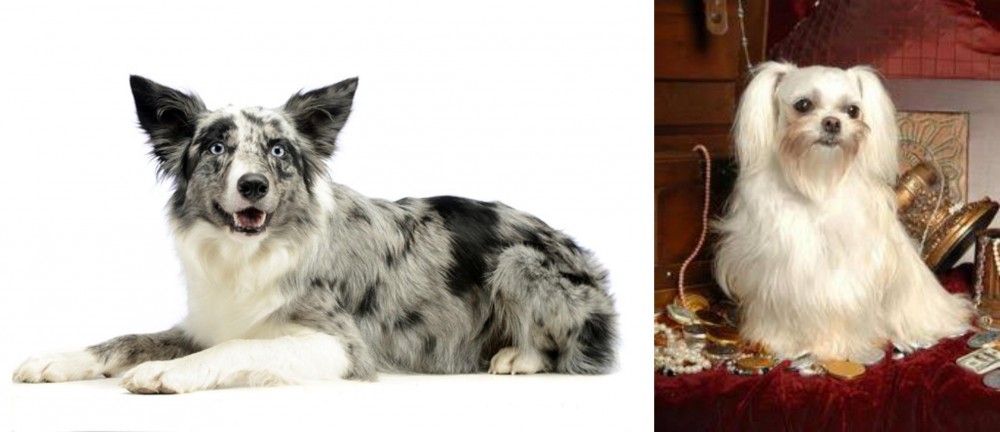 Koolie is originated from Australia but Toy Mi-Ki is originated from United States. Koolie may grow 30 cm / 12 inches higher than Toy Mi-Ki. Koolie may weigh 19 kg / 42 pounds more than Toy Mi-Ki. Koolie may live 4 years more than Toy Mi-Ki. Both Koolie and Toy Mi-Ki has almost same litter size. Koolie requires Low Maintenance. But Toy Mi-Ki requires Moderate Maintenance
Koolie is originated from Australia but Toy Mi-Ki is originated from United States. Koolie may grow 30 cm / 12 inches higher than Toy Mi-Ki. Koolie may weigh 19 kg / 42 pounds more than Toy Mi-Ki. Koolie may live 4 years more than Toy Mi-Ki. Both Koolie and Toy Mi-Ki has almost same litter size. Koolie requires Low Maintenance. But Toy Mi-Ki requires Moderate Maintenance
 The Koolie's ancestors were both the smooth coated blue merle Collie as well as the Black and Tan Collie. The dog hails from Australia.
The Koolie's ancestors were both the smooth coated blue merle Collie as well as the Black and Tan Collie. The dog hails from Australia.
Looking much like the Heeler dog, the Koolie is thought to have got its name from German immigrants to Australia who couldn’t pronounce the name ‘collie’ properly, so the name came out as Koolie. The Koolie of today is a product of a cross between the German Koolie and the Australian Dingo.
The dog has been around for a long time and in 2000, the Koolie Club of Australia was formed. It was in 2004 that the Koolie was recognized by the Australian Sporting Registrar. In May 2006, the Stockdog Committee of the Australian Shepherd Club of America accepted the Koolie as a recognized and accepted herding breed.
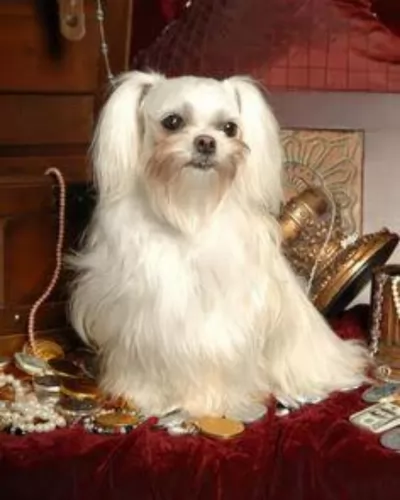 The Toy Mi-Ki is a sociable companion dog. He hasn’t got a long history, and the little bit of history there is, isn’t clear.
The Toy Mi-Ki is a sociable companion dog. He hasn’t got a long history, and the little bit of history there is, isn’t clear.
It is believed that the breed was bought about by Maureen Westburg. It was in the 1980s that she crossed several toy breeds to develop the Mi-Ki. It is thought that she gave the dog the name Mi-Ki because her name was Mikkie. It seems whe wanted a dog that came close to looking like a gremlin.
Some of the dogs used in the breeding program were the Japanese Chin, the Maltese, and the Papillon. The International Miki Registry is trying to get recognition with the United Kennel Club for this dog. There are other canine clubs and organizations that recognize the Mi-Ki Dog as a breed.
 Known also as the German Koolie or German Collie, the Koolie is a working- or herding dog standing at between 40 – 60cm in height and weighing up to 24kg.
Known also as the German Koolie or German Collie, the Koolie is a working- or herding dog standing at between 40 – 60cm in height and weighing up to 24kg.
The Koolie's coat is a merle coat pattern in red or black and possibly with some tan and is mostly short and smooth, though it can be medium length too. Depending on the coat color – red or black – the nose and eyes can be either brown or black, although eye color can also be blue or yellowish.
The Koolie is such a wonderful pet who has some excellent characteristics to his name. He is active, energetic, fun, clever, friendly and playful, but if you have him trained and socialized he becomes even more of a great family pet. He is intelligent too and will require an owner who is steady, firm, fair and consistent. You wouldn't call him an aggressive dog
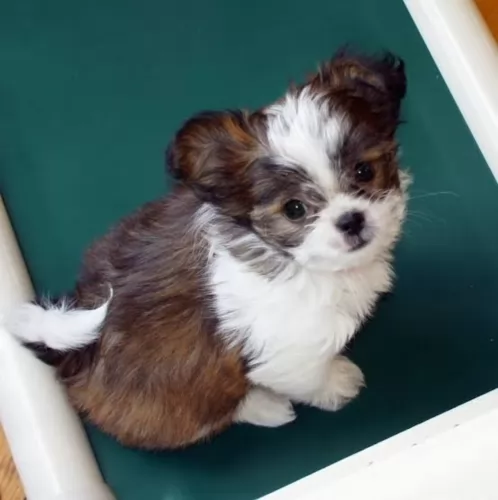 The small Toy Miki stands at between 25 cm – 30 cm in height and weighs between 2 – 5kg. You get two different coat types – long and short and the long-haired variety also has quite a bit of hair around the face.
The small Toy Miki stands at between 25 cm – 30 cm in height and weighs between 2 – 5kg. You get two different coat types – long and short and the long-haired variety also has quite a bit of hair around the face.
His longish coat is low-shedding which makes him popular for people who battle with allergies. The Miki Dog will produce about 2 – 4 puppies.
As a toy dog, he has a domed head with large eyes. Their ears are feathered and are carried erect and the tail is long and feathered.
These little dogs are popular companion dogs and they’re intelligent and loving, making the ideal pet for anyone.
It’s a friendly dog and yet he will bark to alert you of an intruder. Youll take notice because he isn’t the kind of dog that just yaps away.
Children love them and they make great playmates for children who have been taught to be kind and gentle with animals.
Their small size and their adaptable nature make them suitable for city or country living. Sweet and amicable, the social purebred Toy Mi-Ki is everything you want in a companion.
He is loyal and devoted, calm and adaptable. They’re not the kind of dogs to go jogging with you, but nonetheless, he will still need his exercise – walks every day as well as ball games.
 Many people today like the idea of a ‘wild’ animal as a pet, and the Koolie, with his Dingo ancestry, can be a challenging dog breed to keep. People eventually blame these animals for having a poor temperament – meantime all they are essentially, are high-energy animals.
Many people today like the idea of a ‘wild’ animal as a pet, and the Koolie, with his Dingo ancestry, can be a challenging dog breed to keep. People eventually blame these animals for having a poor temperament – meantime all they are essentially, are high-energy animals.
If you keep a Koolie, it will be better if you were a firm, kind, patient, consistent dog owner who understands the special needs of these kinds of dogs. They’re an energetic, care-free animals who will do better on a large property or farm as he is lively and will need a good deal of exercise.
He is quite capable of being a splendid pet with training and socialization and will settle down well to family life when he is loved and cared for.
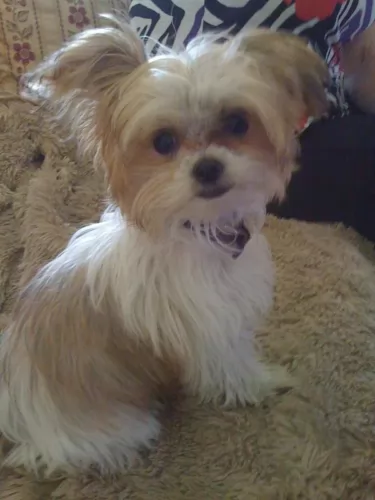 The Mi-Ki is calm and good-natured, and because of his cuteness, he can’t help but become a lap dog, if you allow him.
The Mi-Ki is calm and good-natured, and because of his cuteness, he can’t help but become a lap dog, if you allow him.
He is social and just loves human companionship. He is friendly too and will quite happily be friends with children and pets in the home.
Make sure he is trained and socialized so that you become one of the many people who have nothing but good things to say about this sweet little dog.
 The Koolie is a long-lived dog and there are records of it being able to reach 18 years of age. Because they have a diverse gene pool, you won’t find many genetic problems with this dog.
The Koolie is a long-lived dog and there are records of it being able to reach 18 years of age. Because they have a diverse gene pool, you won’t find many genetic problems with this dog.
It is always wise when you’re the owner of a dog, to look out for his health and wellbeing -
This is to prevent your Koolie picking up fatal diseases such as distemper and parvo-virus. Dogs can be vaccinated from 6 weeks of age for protection.
Working dogs like the Koolie are susceptible to parasites such as tapeworm. Worming of your dog can be included in your vet visit. Dogs with worms may show tell-tale signs such as being pot bellied, very pale gums, anemia and a dull, thinned coat.
A look at his droppings may reveal white segments or worms. Fleas are another kind of parasite and they breed quickly in warm months. Mange is a skin disease caused by small parasitic mites which can actually live inside the hair follicles of dogs. Veterinary treatment will be required.
This is when your pet’s temperature rises out of control. Dogs pant to reduce their body temperature so a dog puffing heavily is putting in extra work to reduce his body temperature.
Never leave you pet in a boiling hot car as the body becomes weak and he has difficulty with breathing. Without immediate treatment, the dog will collapse and die.
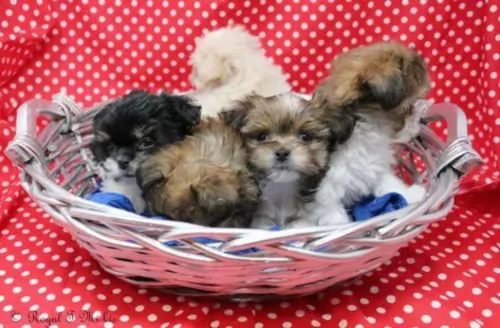 You just have to bear in mind, that because of his short muzzle, he is prone to respiratory problems. Too much exercise and you may find him huffing and puffing. Be careful on a hot day.
You just have to bear in mind, that because of his short muzzle, he is prone to respiratory problems. Too much exercise and you may find him huffing and puffing. Be careful on a hot day.
Also, little dogs like this often have all kinds of dental problems. When you brush him, check his teeth because he can’t tell you if he has a rotten tooth causing him a lot of pain and misery.
Check his eyes too that they are bright and clear and check the inside of his ears. Hypothyroidism and eye issues can also bother the Mi-ki.
 The Koolie is an intelligent dog that will benefit from training and socialization to make him obedient and able to cope in diverse situations.
The Koolie is an intelligent dog that will benefit from training and socialization to make him obedient and able to cope in diverse situations.
These dogs show an untiring enthusiasm for exercise and work and wherever you live, you will need to ensure that he gets regular exercise.
Only the very best - both home-made and commercially manufactured food - will be good enough for this energetic dog. Good quality food ensures health and longevity. Always see that there is a constant supply of fresh, cool water.
Make sure that your dog has a warm, dry place to sleep inside and that when outside, he has a cool, sheltered spot from the sun.
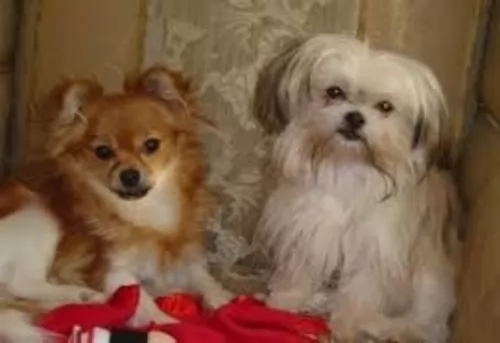 Considered to be low-shedding, the Mi-Ki will benefit from a brush once or twice a week.
Considered to be low-shedding, the Mi-Ki will benefit from a brush once or twice a week.
Some people take their Mi-Ki’s to have their hair professionally cut. This is a good move because then the ears, teeth, and nails are attended to as well.
You can do all of these things at home yourself, but sometimes, particularly with the long-haired Miki, the matting of the hair can make it that you rather send him to professional groomers.
Like all dogs, the Mi-Ki dog will need nutritious food if he is to stay healthy. He isn’t a big eater and you will find the perfect food for your small canine pet.
Read on the packaging to make sure you get high-quality dry food for small dogs. You want the ingredients to be as natural as possible without any toxic colorants and additives.
Meat and protein must always be the top ingredients. Try to provide some home-made food too. Boiled chicken, brown rice, spinach, and sweet potatoes can be chopped up finely and a small portion added occasionally to the dry kibble as a tasty treat.